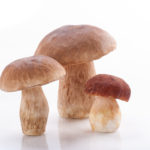By David Blyweiss, M.D., Advanced Natural Wellness
August 03, 2012
- You might as well outlaw your poppyseed bagel
- The high-protein, easy-to-digest dairy alternative
- The secret medical use of this misunderstood herb
Hemp products are popping up everywhere. In natural foods aisles in the supermarket, specialty product websites online, and in chic clothing stores. How is it that you can make clothing, paper, rope – and food – from this plant? And more confusing, why can we import it into the U.S., but not grow it?
Well, if you came of age in the 50’s and 60’s, you know the answer. Hemp is one of the 2000 varieties of the Cannabaceae family of plants. And so is marijuana. Which makes hemp guilty by association. At least, as far as the U.S. government is concerned. Even today, it’s illegal to grow hemp here, although it can be imported from the many countries around the world that can.
Confused?
You’re not alone. Hemp has had a rough road, especially in the U.S. And it remains shrouded in misunderstanding.
MD Exposes the Hidden Danger to Your Eyes

When your eyesight starts to fail, it's a real problem. Suddenly you can't go to the grocery store... you can't get to the doctor if you have an emergency... you can't meet your friends for dinner…
Your "regular" doctor doesn't have time to keep up with the latest research. And the same goes for eye doctors. They go to school to learn how to fit you for glasses and contacts, but have no way of preventing the damage and loss of eyesight that threatens your freedom and independence.
Let me show you something that explains a LOT about how your eyes work.
In my FREE Special Report, I'll show you a HUGE, untapped resource for your eyes that safely and naturally restores clear, effortless eyesight.
Click here to get started...
To this day, a Google search of hemp brings up pages on marijuana, and vice versa. Practically ensuring these two cousins will be forever linked in our minds, despite their significant differences.
Which is a shame. Because hemp has many health benefits, not to mention practical uses. Today, I’ll uncover a few facts about hemp, dispel some myths, and let you know what uses for hemp I recommend you try…
One of the glaring differences between hemp and marijuana is the presence of THC (tetrahydrocannabinol), which is what gives marijuana its psychoactive kick. But hemp is very low in THC. For the sake of comparison, getting a buzz from a hemp product is even less likely than getting one from your poppyseed bagel.
Plus, hemp is high in CBD (cannabidiol), which is antipsychoactive. Clearly – although hemp and marijuana are part of the same plant family – they are very distant cousins.
Now that you know what hemp is (and isn’t!), let’s discuss the real reason I’m bringing it to your attention: the health benefits.
The World's Quickest Solution for Ending Prostate and Urinary Misery
This has recently been revealed to be one of the only real breakthroughs in prostate health.
The seeds of a strange fruit (sometimes called "Chinese Apples") hold powerful phytonutrients that are a revolution in prostate health.
In fact, UCLA and Veterans Administration research have now proved this to be true.
Not only that, but it may be the worlds quickest solution for ending prostate misery.
Simply stated, these phytonutrients represent a huge step beyond beta sitosterol, saw palmetto, and other phytosterols alone.
Simply click HERE if you want to have fast prostate relief...restful, uninterrupted sleep...no more constant "urges to go"...enhanced virility...and optimal prostate support for life.
Hemp seeds pack a powerful nutritional punch. Two tablespoons of shelled hemp seeds contain about 11 grams of protein and 2 grams of unsaturated omega-3 fatty acids.
Not only are they highly concentrated, but hemp seeds are a complete source of protein, containing 10 essential amino acids in nutritionally significant amounts. And they have a similar cellular structure to a protein manufactured in human blood, so they are more easily digested than most other forms of protein, such as soy.
For this reason, I highly suggest using hemp milk, made from hemp seeds, as a dairy milk alternative. It is far more digestible than soy milk, and is not prone to allergic reactions the way tree nut products are, such as almond milk.
Hemp milk is also free of enzyme inhibitors called phytates, which can interfere with the absorption of essential minerals, and oligosaccharides, which can cause gas and bloating.
Hemp seeds are also a significant source of essential fatty acids, with around 80 percent of its total oil volume being made up of healthy Omega-3, -6 and -9 fats. Plus, they contain an enviable 3:1 ratio of omega-3 to omega-6. No other vegetable or nut oil contains EFAs in such a high concentration or proper ratio.
As a source of healthy protein and oils, you can’t beat hemp. But what about the medical uses of hemp? Do they compare to the purported uses of marijuana?
The benefits of what is commonly known as “medical marijuana” have been both known and controversial in the medical community for many years. Many cancer and AIDS patients swear by it, claiming that no pharmaceutical drug has given them the same pain relief they get from marijuana containing THC.
But while industrial hemp may not have the pain relieving qualities that come with THC, there are some studies that suggest the CBD may also have medical benefits. One study suggested that CBD reduces the growth of aggressive breast cancer cells and reduced their invasiveness. And another found both THC and CBD were effective against brain tumor cells, and showed some promise in shrinking tumor size.
Other studies suggest that CBD acts as an anti-psychotic, and could be effective in treating patients with schizophrenia or extreme cases of anxiety.
It’s possible that the surge in the popularity of hemp products might make the distinction between hemp and marijuana more clear, both to the government and the general public.
If these studies are any indication, we have only scratched the surface of what this long misunderstood, mistreated herb might be able to do for us. And the sooner we can cultivate it and make it more widely available here in the States – for all of its purposes, practical, nutritional and medical – the better.
Resources
Shrivastava A, et. al., Cannabidiol induces programmed cell death in breast cancer cells by coordinating the cross-talk between apoptosis and autophagy. Mol Cancer Ther. 2011 Jul;10(7):1161-72. Epub 2011 May 12.
Zuardi, A.W. et. al., Cannabidiol, a Cannabis sativa constituent, as an antipsychotic drug. Braz. J. Med. Biol. Res. 39 (4): 421–429. (2006).






